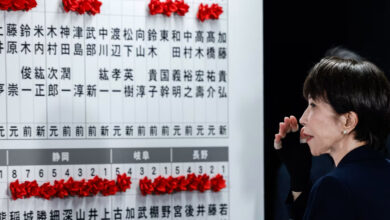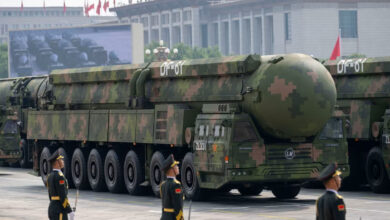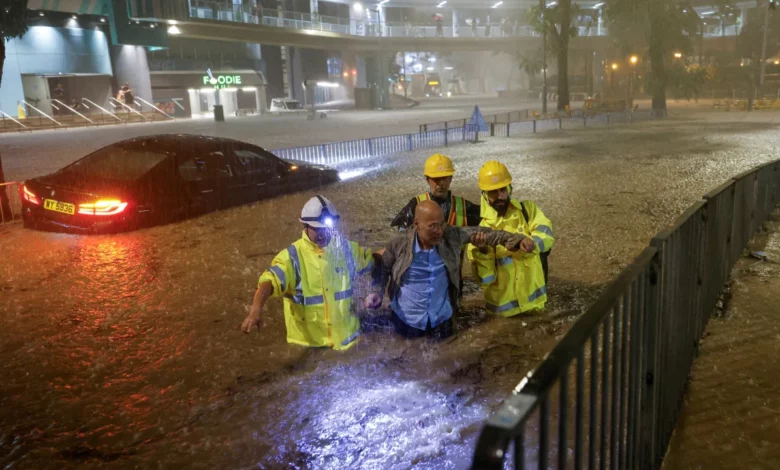
Photos and videos showed residents wading through murky brown floodwaters as heavy rain continued to inundate the densely populated city of 7.5 million. In some low-lying areas, streets were transformed into surging torrents, with authorities forced to rescue motorists stuck in their vehicles.
The deluge began late Thursday night, with the Hong Kong Observatory recording more than 158 millimeters (6.2 inches) in rain between 11 p.m. and midnight, the highest hourly rainfall since records began in 1884, the government said in a news release.
Some parts of city saw almost 500 mm (19.7 inches) of rainfall in 24 hours, according to online weather data site OGimet.
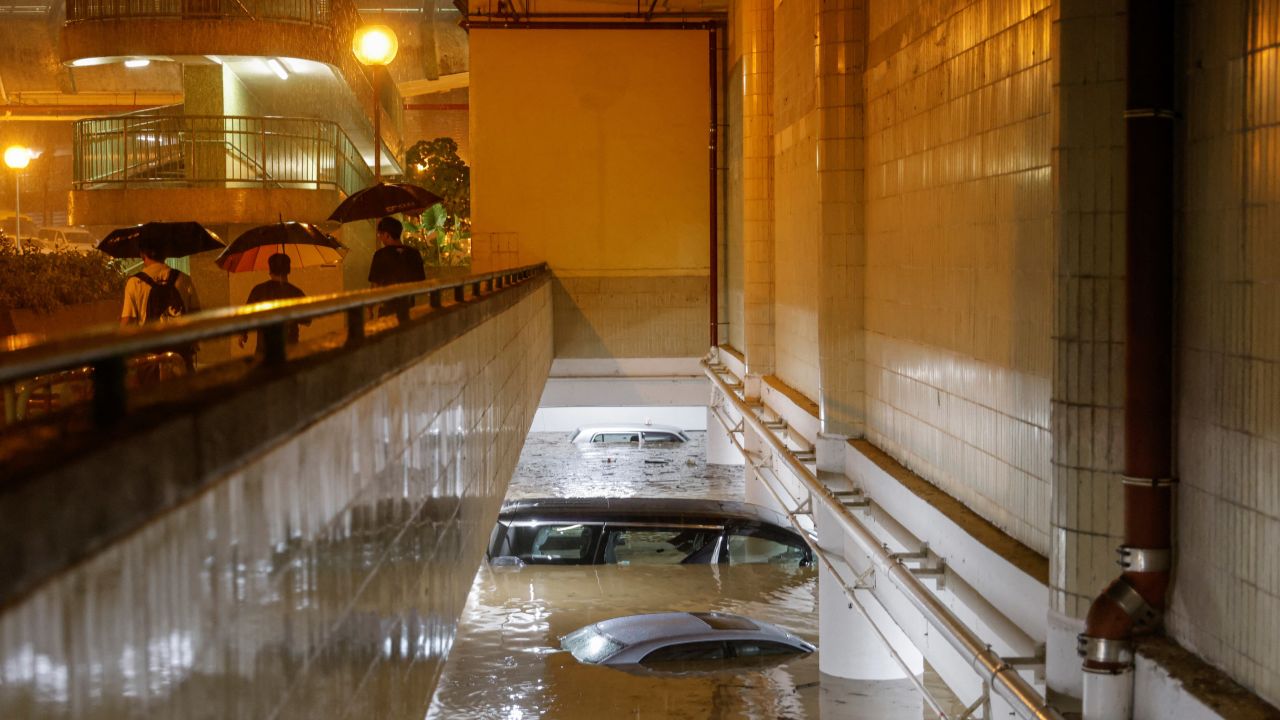
The extreme conditions caught many residents by surprise and came just days after Hong Kong was lashed by its strongest typhoon in five years.
Typhoon Saola, originally a super typhoon, weakened to the equivalent of a Category 2 hurricane as it reached Hong Kong last weekend – but was still potent enough to shut down the city and cause hundreds of flight cancellations. Eighty-six people were injured from the typhoon, the government said.
Friday’s deluge again caused widespread transport and business disruptions across the financial hub, with the stock market canceling morning trading, and all schools closed for the day. On Friday, authorities appealed to businesses to allow non-essential employees to stay at home or seek safe shelter, citing unsafe travel conditions.
Stuart Hargreaves, a Hong Kong resident and professor, was forced to spend the night in his car after being stranded while driving home late Thursday. The flooded roads were “impassable,” he said; at one point, “water was coming over the hood of the car and I thought it was going to flood the engine.”
Several other cars had similarly flooded and were “floating” nearby, he said. He managed to park in a safe place, but there was no way out – leaving him stuck until daybreak. When he managed to drive home nine hours later, the road was “full of rocks from landslides, debris from trees, abandoned cars and so on,” he said.
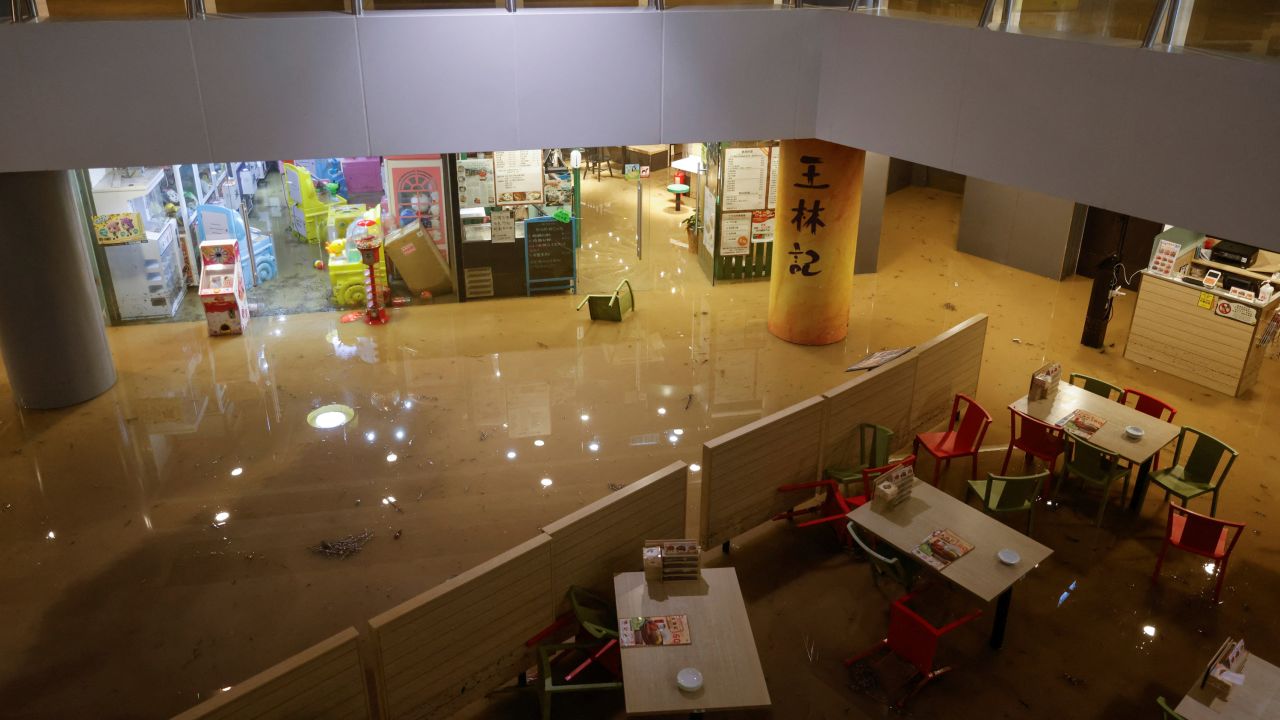
As of Friday afternoon, 110 people have been reported injured from the downpour, four of whom are in serious condition, according to Hong Kong’s Hospital Authority. The government said Friday that such “extreme” conditions were expected to continue until at least midnight.
The city’s Mass Transit Railway announced it would suspend services on one of its lines after a station in the Wong Tai Sin district was flooded, with footage shared widely online showing floodwater gushing down the stairs. Another video shows workers at a different station up to their knees in water, struggling at the entrance to keep the flooding at bay.
While most other subway operations remained open, all major bus, tram and ferry services were suspended, according to public broadcaster RTHK. And although some bus services resumed Friday afternoon, many routes remain closed or diverted.
Multiple roads were also closed off due to the threat of landslides in the mountainous territory, with authorities issuing the highest “black” rainstorm warning for the first time in two years.
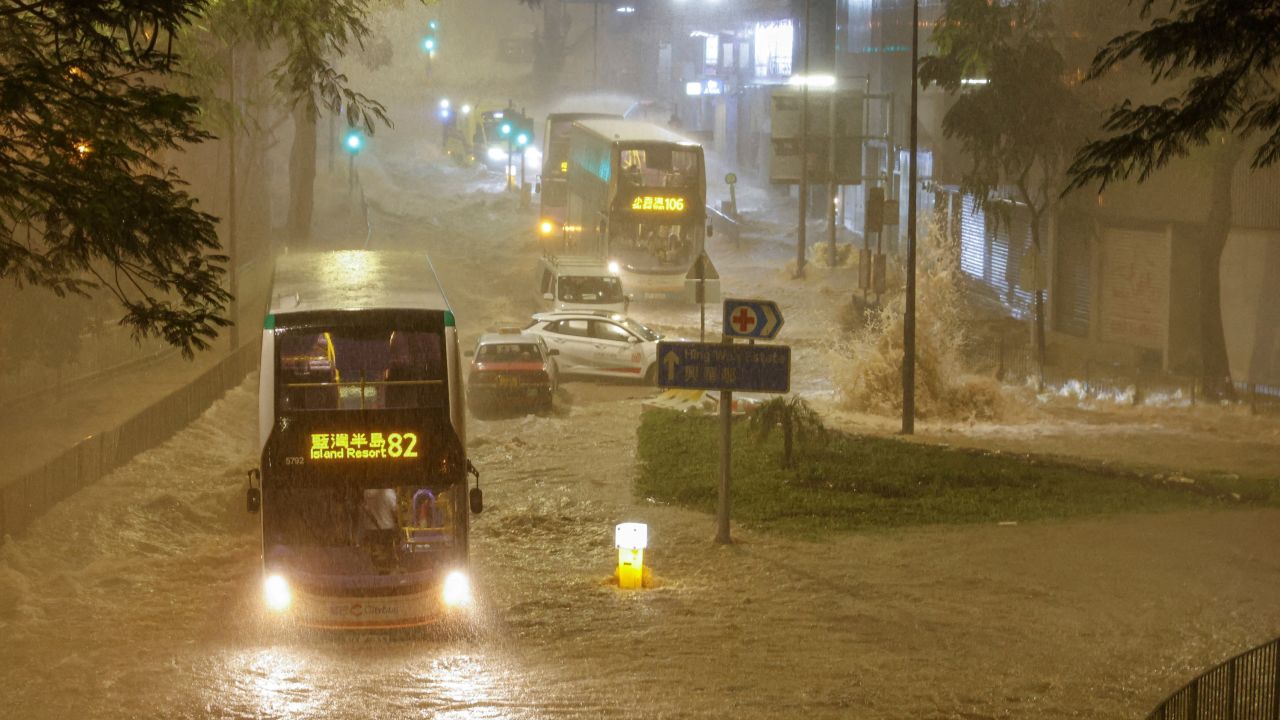
Videos from Thursday evening show floodwater entering the first floors of some buildings and shopping malls, with chairs and debris scattered across the floor.
The government also warned “there may be a risk of flooding” in its northern New Territories district, which is adjacent to the Chinese mainland, after the neighboring city of Shenzhen said it would release water from a reservoir.
The downpours in Shenzhen also broke multiple rain records in the city, including the maximum rainfall records over two-hour, three-hour, six-hour and 12-hour periods, which have stood since 1952, according to Chinese state media.
Shenzhen saw 469 millimeters (about 18.5 inches) of rain from 5 p.m. Thursday to 6 a.m. Friday, with kindergartens, primary and secondary schools shut on Friday, state media reported. Transport was disrupted there, too, with six subway lines suspended.


